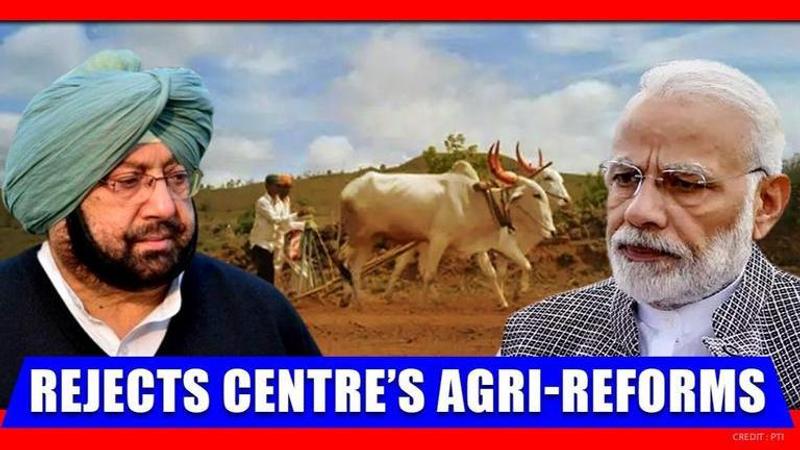Published 17:34 IST, June 5th 2020
Punjab CM rejects Centre's agricultural reforms; warns disruption in 'food procurement'
After the Union cabinet approving the key decisions to agriculture and other sectors, Punjab Chief Minister Captain Amarinder Singh on Friday, has rejected them

After the Union cabinet approving the key decisions to agriculture and other sectors, Punjab Chief Minister Captain Amarinder Singh on Friday, has rejected the reforms. Speaking to the media, the CM has stated that the reforms were a brazen attempt to destabilize the country’s federal structure. He added that it disrupts the MSP regime and foodgrain procurement regime. Moreover, he added that agriculture is a state subject stating 'Union Govt has no powers to deal with it'.
Punjab CM rejects Centre's agriculture reforms
Cabinet decisions taken for farmers
On June 3, the Union cabinet approved amendment made in the Essential Commodities Act, 1955, removing items such as food grains, oil, dal, pulses, potato from its purview. The cabinet has approved an ordinance to free the farmers from the constraints of the Agriculture Produce Market Committee whereby the farmers would be able to sell their produce anywhere. Farmers (Empowerment and Protection) Agreement on Price Assurance and Farm Services Ordinance too has been approved to ensure that farmers get greater freedom to engage with processors, wholesalers, large retailers, exporters while protecting their interests. These schemes had already been announced as part of the economic tranches rolled out by Finance Minister Nirmala Sitharaman.
Centre's agricultural tranche
Finance Minister Nirmala Sitharaman announced 11 measures - of which 8 of them focused on strengthening infrastructure, capacities and building better logistics in Agriculture, Fisheries and animal husbandry, while the rest 3 pertained to governance and administrative reforms. Agricultural reforms included rolling out schemes to finance farming infrastructure, micro food enterprises, fishermen, animal health, dairy infrastructure, herbal cultivation, bee-keeping and food supply chain management. This was the third installment of the Centre's Rs 20 lakh crore COVID-19 relief package.
On the governance measures, the Centre announced that it will amend the Essential Commodities Act which was enacted in 1955 to enable better price realisation for farmers by attracting investments - making agriculture sector competitive. It also will agriculture marketing reforms to provide marketing choices to farmers via a Central law to provide - Adequate choices to the farmer to sell the product at an attractive price, barrier-free inter-state trade, a framework for e-trading of agriculture produce. Some politicians have pointed out that agriculture is a state matter, slamming the ordinance as an overreach by Modi govt.
Updated 17:34 IST, June 5th 2020




